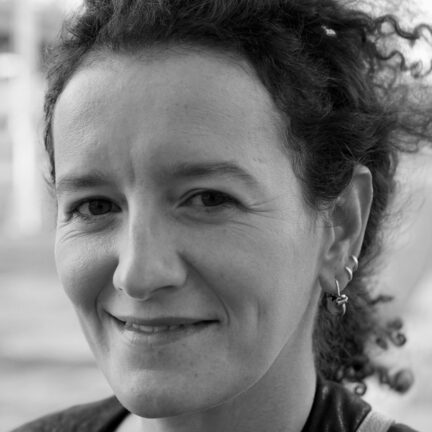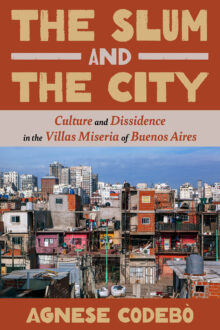
Agnese Codebò
Agnese Codebò is assistant professor of Latin American literature and culture in the Spanish Department at Villanova University. Her articles have been published in the Journal of Latin American Cultural Studies, the Journal of Latin American Geography, the Latin American Literary Review, Les Cahiers Amérique Latine Histoire et Mémoire, and other venues in English, Spanish, and Italian.
The Slum and the City
Culture and Dissidence in the Villas Miseria of Buenos Aires
The Argentine capital is largely perceived as a middle-class space. Yet in reality, urban poverty and precarious settlements are defining features of the city. Agnese Codebò investigates how slums have produced culture as well as their representation in literature and the visual arts from the 1950s to the present. Looking at government-led urban projects, as well as novels, artworks, films, militant magazines, poems, and music, she tells the story of how villas miseria have mattered culturally and socially as spaces that produce new aesthetics, cultural trends, and social alliances, while offering a vantage point to understand the city and its problems. Slums represent a heterogeneous urban space, and Codebò makes the case for their relevance in Argentine culture, demonstrates the need to rethink spaces of production, and develops a new premise for a decolonial approach to Argentine cultural production.

